#Caribbean American
Text
I was thinking about how in middle school I used to wear my natural hair in twists. It’s was back when my hair was really long. Everyday I’d have classmates coming up to me to tug on my hair and watch it bounce. Sometimes they’d ask first, most of the time they did not.
By high school I cut my hair and had an Afro. People would often touch it and usually mess up how I styled it that morning.
Now I’m in college and I constantly get questions asking me if my hair is real. People call my Ice Spice to my face and while laughing secretly, even tho I can still hear them. Mind you I look nothing like Ice Spice, we just happen to both have afros. I’m much darker than she is.
I guess my point is that most do not know how to be normal about black hair. Sometimes it’s balanced out from the amount of compliments I get on it. But it’s exhausting when the majority of people either see my hair as a toy to be played with or the butt of a joke.
#black hair#black tumblr#black community#black artist#people of color#natural hair#Caribbean American#african american
146 notes
·
View notes
Text
Couldn’t share this earlier due to personal reasons but I need to do it before June ends:
Happy Romani history/heritage month
Happy Indigenous history/heritage month
Happy Caribbean/Caribbean-American history/heritage month
Happy pride month
You are loved and celebrated❤
#romani#opre roma#indigenous#caribbean#caribbean american#happy pride 🌈#happy pride 🏳️⚧️#lgbtq#bluebellcloud
88 notes
·
View notes
Text
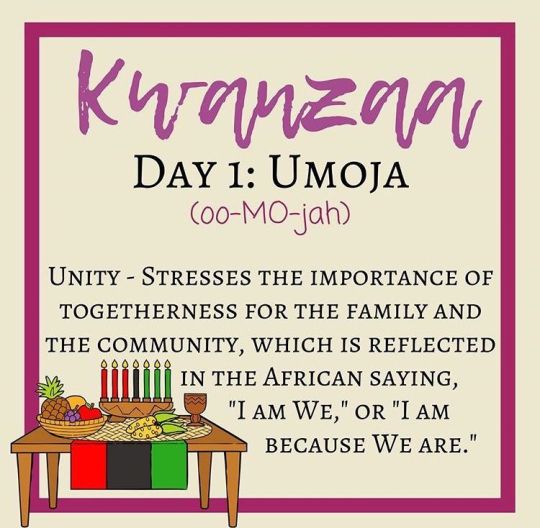

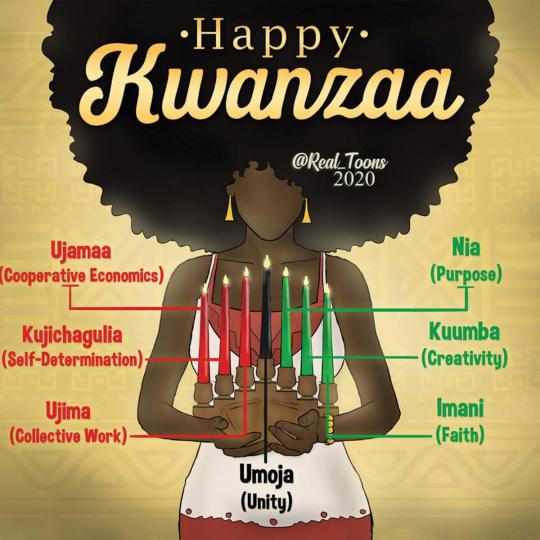
December 26th (First Day of Kwanzaa!)
#happy kwanzaa#happy holidays#interpersonal#interconnectedness#african diaspora#african american history#caribbean american#umoja#swahili#Umoja (Swahili for Unity): To strive for and maintain unity in the family community nation and race.#Dagi knot - a Pan African symbol of unity found in several African cultures i.e. Yoruba Hausa Bushongo etc.#culture
6 notes
·
View notes
Photo
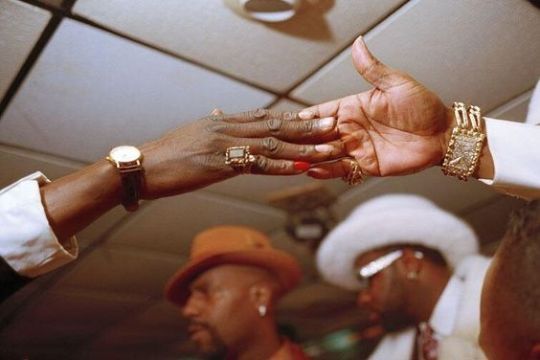
Afro Culture (My Culture)
@woobosco - This shit gon be framed in my crib.
#african#african american#afrocentric#afro#afrofuturism#Afro Culture#Afro Centric#afro caribbean#afro curls#afro love#afro handshakes#afro dabs#black love#black people#black panther#black history#black power#blackgirlmagic#black men#black cat#blacklivesmatter#black lives#black life#black beauty#ebony#ebony life#ebony love#woods#woodstock#woo
5K notes
·
View notes
Text
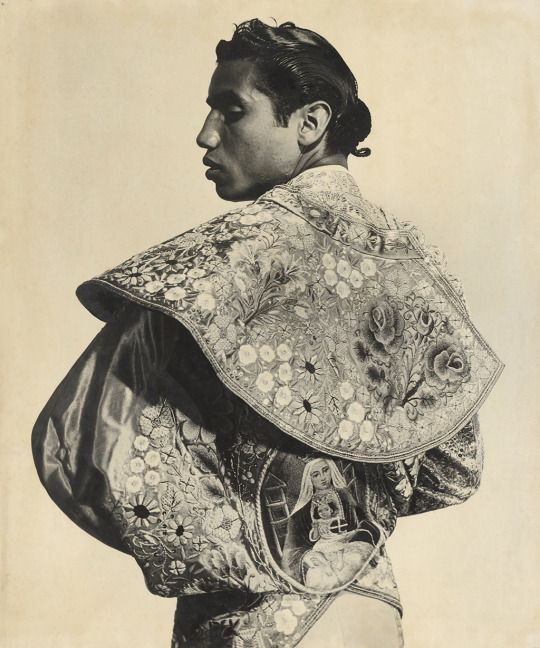
Luis Sánchez Olivares 'El Diamante Negro' (1952)
Alfredo Boulton
#alfredo boulton#venezuela#art#arte#arte latinoamericano#caribbean#latin american art#caribbean art#photography#fotografía#fotografia#torero#bullfighter
482 notes
·
View notes
Text
#real talk#black#blacklivesmatter#black is beautiful#black is classy#black is sophisticated#dope#preach#beautiful#African#Africa#caribbean#American#black is powerful#black women#black woman#black men#black man#west indies#west indian#melanin
730 notes
·
View notes
Text
BOTD: Crested Caracara

Photo: Manjith Kainickara
"Related to the typical falcons, but very different in shape and habits. The Crested Caracara is a strikingly patterned, broad-winged opportunist that often feeds on carrion. Aggressive, it may chase vultures away from road kills. Widespread in the American tropics, it enters our area only near the Mexican border and in Florida. 'Caracara' comes from a South American Indian name, based on the bird's call."
- Audubon Field Guide
#birds#crested caracara#birds of north america#north american birds#caracaras#falcons#raptors#birds of prey#birds of the us#birds of mexico#birds of central america#birds of caribbean#birding#birdblr#birblr#bird of the day#Caracara cheriway
200 notes
·
View notes
Text
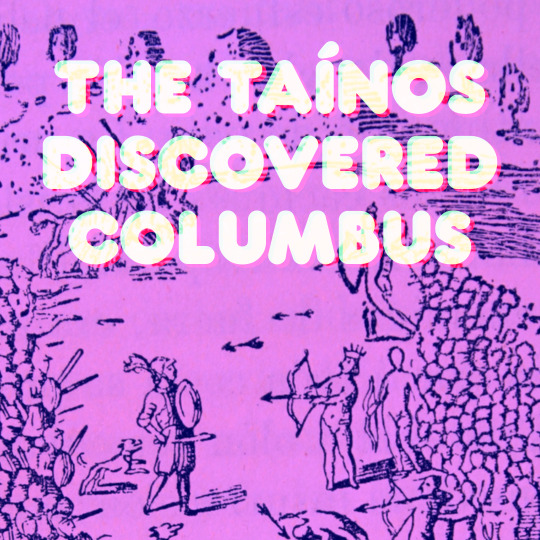
On October 12, 1492, Columbus arrived on the shores of the Caribbean, the now-called Bahamas, and the Taíno people welcomed him and his crew with respect and great care. Their kindness was repaid with vicious cruelty and enslavement.
The horrors of genocide left no one untouched on Turtle Island and Abya Yala, but the Taínos were the first to encounter this scourge. There aren't enough people who call them by name and claim a ubiquitous "indigenous peoples" encountered Columbus.
Know and name the Taíno and the ways they suffered as a result of First Contact.
And also the ways they have persisted and survived to this day. Check out the United Confederation of Taíno People (UCTP) / Confederación Unida De El Pueblo Taíno (CUPT) as a place to start.

The Taino peoples are not a monolith and include many different tribes and areas.
Image 1: Cristobal Colón, 1893 "La gran batalla que tuvo el almirante con el Rey Guarionex y cien mil indios en la Vega Real" | Wikipedia
Image 2: "Distribución de los arahuacos taínos, caribes y guanahatabeyes en las Antillas, en el tiempo de la llegada de los españoles." | Wikipedia
#indigenous peoples day#indigenous history#taino#tainos#taino culture#indigenous erasure#christopher columbus#caribbean indigenous#fuck columbus#1492#ndn tumblr#ndn tag#ndn country#ndn#native american#first nations#turtle island#abya yala#indigenous people#indigenous
2K notes
·
View notes
Text
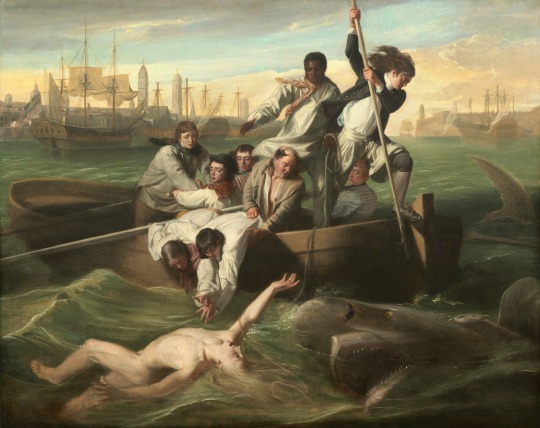
Watson and the Shark by John Singleton Copley
#john singleton copley#art#shark#sharks#havana#cuba#brook watson#english#british#american#shark attack#history#sea#caribbean
290 notes
·
View notes
Text
Here's a video explaining how the US invaded and occupied Haiti in the early 20th century
instagram
#haiti#us#usa#america#latin america#Caribbean#global south#politics#american imperialism#us imperialism#Instagram#the coboi#black politics#black liberation#problack#antiblackness#antiblack
139 notes
·
View notes
Text
Sweetheart ♥️ Milo
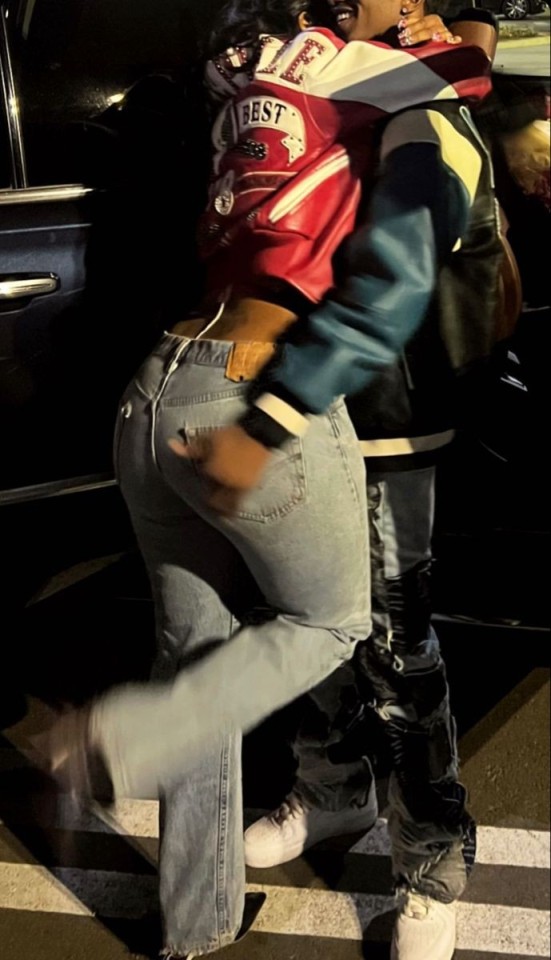







I'm so obsessed with them it ain't even funny
#afab coded Sweetheart#african american sweetheart#YOUR HONOR THEY'RE NEGROS#maybe afro-latino Milo#me thinks that's hawt#omg imagine Caribbean Milo#🤭🥴😵💫#i have whole pinterest boards for them#your honor I'm ill#archive of the eccentric ⚰️#hobiesrockstargf#conniesrockstargf#donnie's archive: moodboards 🖼️#redacted audio#milo greer#redacted sweetheart#redacted milo#milo x sweetheart#milo 🗽🐺#sweetheart 🥷🏾💋
68 notes
·
View notes
Photo
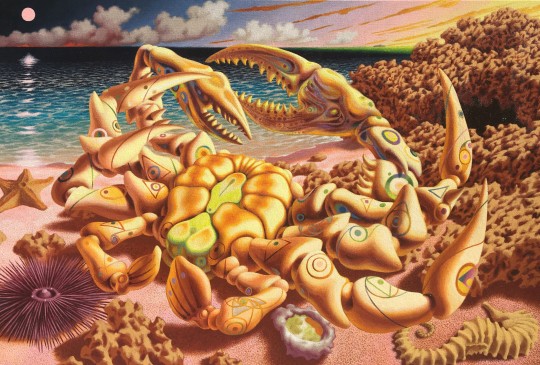
José Ramón Alejandro — Omó Iyá Omí (Children of Mother Water) [acrylic on canvas, 2018]
494 notes
·
View notes
Text
Black Diaspora, if King Charles dies on Black History Month we need to…
TURN IT UP!!!

#black diaspora#it’s a month long celebration#uk politics#british royal family#king charles#king charles iii#black community#black girls of tumblr#the ancestors taking out the of oppressors one by one this year#black americans#soulaan#Black Caribbeans#former british colonies#black tumblr
112 notes
·
View notes
Text

#johnny depp#dior#dior sauvage#gellert grindelwald#willy wonka#wonka#grindelwald#fantastic beasts#pirates of the caribbean#jack sparrow#goth#gothic#american gothic#southern gothic#southern goth aesthetic#cowboycore#ruralcore#rural america#rural gothic#rural#rural photography#rural living#cowboy
125 notes
·
View notes
Text
WAKE UP ITS HAMILTON TIME (hamilton pt 1)
everyone thank richard for getting me to put all my knowledge about alexander hamilton in one place. if you're at all new or confused, @thereallvrb0y once asked me 3 years ago to tell him everything about every historical figure i can, and since then i have been doing that. now we are onto the last one on the list he gave me, and studying hamilton is literally my life's work, so here it is. on tumblr.com. for free.
my sources for this are Ron Chernow and Hamilton himself and a strange amalgamation of knowledge from different museums, documentaries, interviews with historians, and other otherwise publicly accessible knowledge that i have compiled into the vast library inside my mind! you can find my notes in the link in my pinned post. let's go (this historical research is sponsored by the ghost of freddie mercury and my aunt who made me a whole pot of coffee)
Background Information
Ron Chernow loves to talk about how the island of St. Kitts and Nevis was formed, but that's not fucking important. What's important about Hamilton's birthplace is that it was positioned in the Caribbean in such a way that made it a very easily accessible port, however the coastline was pretty smooth which made it generally unideal for mooring ships.
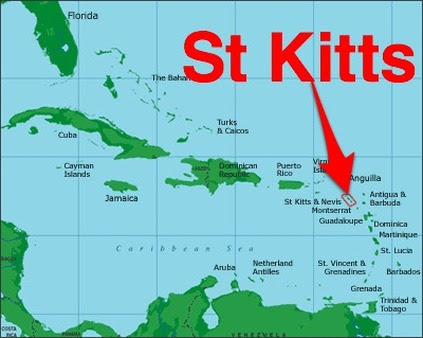
Source: The St. Kitts' Scenic Railway; Six Frigates: The Epic History of the Founding of the US Navy by Ian W. Toll, p. 112 ("Basseterre Roads was not a good natural harbor. It was little more than a dent in the otherwise smooth coastline that ran along the western side of the island. There was no pier- visitors were obliged to run their boats directly onto the beach, sometimes surfing in on waves that broke heavily as they reached the shore.")
Now, notice that St. Kitts and Nevis is, in geographic terms, to the right-ish of the Caribbean. That means when you're coming from Jolly Ole England, you might make a pit stop in St. Kitts and Nevis. So if you ignore the fact that the island has no natural harbor (at least not a good one), it might be a good economic prospect for a young merchant, right?
Well, not if that merchant is James Hamilton, because he was an idiot. And I say that lovingly, or at least more lovingly than Ron Chernow did. Ron Chernow also emphasized that St. Kitts and Nevis was filled with the 18th century version of Shameless, and also Jewish people. Ron Chernow might not hate Jewish people, but he does hate the character archetypes in Shameless. In Shameless terms, James Hamilton was like Frank Gallagher.
Disclaimer: knowledge of Shameless is not necessary to understand that being compared to a guy named Frank is not a good thing
I've already made posts about Hamilton's parents and brother (here, if you'd like to read that ig. weirdo), but I want to talk about the things that Hamilton would have learned from his parents. Later in life, Hamilton vaguely alluded to his father's failings in business being due to an excessive amount of generosity and not really understanding where he should and shouldn't spend his money. This did not by any means make Hamilton stingy with his money, or even smart, for that matter, but it did make him want to be something specific: independent.
James Hamilton's tragic flaw was his dependence on other people, whether it was his older brother or Rachel Faucette or his business partners, etc. Due to the position and order in which he was born, James was never destined to be a leader. He wasn't exceptional academically like other non-first-born-sons, such as James Madison, or dispositionally inclined to organize and inspire, like George Washington. He was just a dude, and he was a dude who was not built for 18th century society, especially not in the Caribbean. From what we can tell, James Hamilton was a gullible, moderately intelligent man with symptoms of autism and non-descript mental health issues. He was basically fucked from the get-go.
Source: Alexander Hamilton by Ron Chernow (p. 12-16); Papers of Alexander Hamilton, vol. 25, p. 89, letter to William Jackson, August 26, 1800 ("In a capacity of a merchant he went to St. Kitts, where from too generous and too easy a temper he failed in business and at length fell into indigent circumstances.")
Rachel Faucette was like James Hamilton's polar opposite. She was forced to learn how to provide for herself, not being able to rely on anyone, because that could be ripped out from under her feet at any moment, and the only thing concrete in her life was herself. She was a woman, and that was what most women had to learn at some point.
Rachel was also perfectly poised to be the clear moral guide for young Hamilton. When James Hamilton left, he basically sacrificed any reverence his son might have for him, and instituted Rachel as Hamilton's sole role model for his developmental years and i just burned the shit out of my hand with coffee.
Disclaimer: James Hamilton had nothing to do with me burning the shit out of my hand with coffee, I promise. You can't blame all your problems on deadbeat dads
If you're a Sigmund Freud fan, (good opener, I know), you're aware of the Oedipus Complex, and that's not exactly what I'm talking about, but yk. look it up. This theory proposed by Freud was only partially rejected by the psychological field (due to the fact that not everything is about wanting to fuck your mom and kill your dad, and also that's not the story of Oedipus Rex like. at all??), but the part that still rang true was that children do have a unique attachment to the opposite sex parent.
Psychological studies show that children tend to describe their opposite sex parents more favorably than same sex parents. Why? I don't know, I'm not a psychologist, I'm an 18 year old who drinks coffee like he was 5 kids to raise.
Source: "The Relation between Attachment to Opposite Sex Parents and Attachment to Romantic Partners" by Gary L. Grogan and Dr. Mary E. Pritchard, p. 10 ("However, most significant for the present inquiry were the findings that respondents described their opposite sex parents more favorably, and same sex parents more critically.")
This statistic is visible in Hamilton's descriptions of his parents, and must have been enhanced by James Hamilton's early departure in his son's life, the consequences from that which seemed constant, but also by the reputation his father had built on the island he left Hamilton on. Hamilton would grow up to see his mother not only providing for herself and her children, but also overcoming the consequences of James' actions, which provoked resentment towards his father, and admiration towards his mother. This will develop as a theme throughout his life, but we'll touch on that as he grows up. He isn't even born yet! So let's get on to that.
Source: so when I say Hamilton's description of his mother, I really mean HIS son's, but JCH most likely got this description from his father, Life of Alexander Hamilton by John Church Hamilton, vol. 1, pg. 42 ("...a woman of superior intellect, elevated sentiment, and unusual grace of person and manner. To her he was indebted for his genius."); for the sake of my reliability and reputation, I'll include JCH's description of his grandfather for comparison, Intimate Life of Alexander Hamilton by John Church Hamilton, p. 13 ("Hamilton's father does not appear to have been successful in any pursuit, but in many ways was a great deal of a dreamer, and something of a student, whose chief happiness seemed to be in the society of his beautiful and talented wife, who was in every way intellectually his superior.")
Early Life
Alexander Hamilton was born ginger on January 11, 1755, and I don't entertain the argument that he was born in 1757 because I'm not an anarchist and I believe society has laws (I'm actually lying, I'll talk about the birth year debate in the college section). Hamilton was not, however, born black or Jewish. He was also, potentially, born not James Hamilton's son.
"Wh- WHAT?! *cries*" I hear you say, and I know, it's shocking information, but yes. First off, Hamilton was not black in any percentage more than the Pillsbury dough boy is black. This theory comes from the fact that Rachel Faucette was a lower class woman and therefore we have no proof that she WASN'T partially black. I don't even have to dispute that for anyone with a gram of critical thinking skills to see that that isn't a valid historical hypothesis.
The Jewish thing has a little more merit to it, and there's a whole book about it that I haven't read. There is some evidence to suggest that Rachel Faucette's ex husband, Johann Lavien, could have been a secret Jewish person, and possibly caused Rachel herself to convert, and she tried to pass on that to Hamilton by having a Jewish woman educate him when he was a toddler (that last part is a true fact, and is the earliest piece of information we have about Hamilton's education). If this is true, (and it's nearly impossible to prove true or false because well if Lavien was a secret Jew, it was a secret), it did not impact Hamilton's religious beliefs in any way, and he identified as a Christian throughout his entire life.
We'll do a paternity test on Hamilton later, just hang tight. See, this is how I get you, I say something controversial, and then I don't talk about it until 16 paragraphs later.
Source: Alexander Hamilton by Ron Chernow, p. 9 ("A persistent mythology in the Caribbean asserts that Rachel was partly black, making Alexander Hamilton a quadroon or an octoroon. In this obsessively race-conscious society, however, Rachel was invariably listed among the whites on local tax rolls. Her identification as someone of mixed race has no basis in verifiable fact. (See pages 734-35 [this is in Chernow's Acknowledgments, and he just talks about how he used a paper trail to come to this conclusion, and thought genetic research would only confuse the evidence. He also discusses that there is a small chance that Hamilton fathered a black child named William Hamilton, but I can go ahead and tell you that's false due to the fact that Hamilton had just arrived in America when William was born -HWS]) The folklore that Hamilton was mulatto probably arose from the incontestable truth that many, if not most, illegitimate children in the West Indies bore mixed blood."); Life of Alexander Hamilton by John Church Hamilton, vol. 1, p. 42 ("...rarely as he alluded to his personal history, he mentioned with a smile his having been taught to repeat the Decalogue in Hebrew, at the school of a Jewess, when so small that he was placed standing by her side upon a table); Ibid., vol. 7, p. 710-11; Papers of Alexander Hamilton, vol. 26, p. 774, "Comments on Jews"
Hamilton's education began with his mother, who is almost definitely the person who made him fluent in French by the time he came to America. Despite limited access to books (34 books in both French and English to be specific), Hamilton still studied everything he could from a young age, with an early love for learning new things and proving that he was smarter than you. However, most of his education was in the School of Hard Knocks Community College, which was amply provided by the environment around him.
In the height of the British Empire, the Caribbean was essentially a social prison for anyone who broke the moral laws of the colonial, Eurocentric society of the time. This included pirates, prostitutes, drunks, thieves, and basically anyone who didn't fit the mold for a member of high society and/or someone who could serve high society and their lives of luxury. Hamilton, by birth, was one of these people.
Hamilton's father moved the family to St. Croix right before he left, which was a dramatic shift from Hamilton's life on St. Kitts and Nevis. In St. Croix, everyone knew Hamilton's mother as the disgraced ex-wife of Johann Lavien, and therefore knew her two sons as "whore-children", which was a word usually given to illegitimate children. Here, Hamilton was roped in with the degenerates of society, and it was practically said directly to him that he was destined to be unholy, unclean, worthless, and disgusting. Could you believe that this would have an impact on his mental health?
Along with seeing the poor lifestyles of the inhabitants of the Caribbean, Hamilton also saw glimpses into a very different world: ~rich people~. There were few rich white people on the islands, and they owned vast amounts of enslaved people, with the black to white ratio being 8:1 in the Caribbean. These enslaved people were forced to live in horrible conditions, and Hamilton saw it everywhere- his mother owned three people, but they were often rented out to garner profit for the white family, rather than working a plantation as others in the Caribbean did. Violence towards enslaved black people was only part of the violence young Hamilton witnessed in the Caribbean, some of which came in the form of dueling *insert ominous music*
Source: Alexander Hamilton by Ron Chernow, p. 18 ("To the extent that dueling later entranced Hamilton to an unhealthy degree, this fascination may have originated in the most fabled event in Nevis in the 1750s [a duel between two men where one of them was killed"); Ibid., p. 19; Ibid., p. 23-24
James Hamilton abandoned the family in 1765, and the reasons he did so are debated, but most likely are due to debt. However, there's another possibility that I've alluded to before: Hamilton's paternity.

So, remember, Rachel Faucette is not a perfect angel, and she also didn't particularly care for matrimony. There is a chance that she was with other men besides Hamilton and Lavien, and though we have no evidence that she was, there is an interesting character I'd like to throw into the mix.
Thomas Stevens, a moderately rich guy, was a merchant who lived on King Street in Charleston, St. Croix, with his wife Ann and his son Edward, who was born a year before Alexander Hamilton. Thomas Stevens was a very generous guy, and Edward Stevens would later be lifelong friends with Alexander Hamilton. And uh. They looked almost exactly the same. I really wish we had a portrait of Edward Stevens, but according to literally everyone, it was hard to tell the difference between him and Hamilton. Now, statistically, we all have some kind of doppelganger out there, but like what are the chances that they grew up down the street from each other and their parents had suspiciously close connections? Now, I'm not saying that Hamilton should have been Alexander Stevens, I think that's pretty irrelevant, but it is possible that Thomas Stevens... you... ARE THE FATHER!!!
Source: Alexander Hamilton by Ron Chernow, p. 27-28 ("Nevertheless, in the absence of direct proof, the notion that Alexander was the biological son of Thomas Stevens instead of James Hamilton would clarify many oddities in Hamilton's biography.")
The Hamiltons' life post-dad-desertion was actually somewhat comfortable due to Rachel's kickassery. She established a little store for a source of income, relocated a couple times, rented out the enslaved people (as one does, i guess, that's such a wild phrase), and kept a pet goat for milk and cheese and idk soap or whatever else people make with goat milk. Her sons would help out, possibly providing an origin for Hamilton's incessant need to be productive at all times without resting. At times, they were supported by his aunt Ann Lytton Mitchell, who he would remain loyal to until his death. During this time, as he was old enough to understand what his father did, is probably when his fiercely loyal, chivalrous and family-driven attitude developed.
Source: Alexander Hamilton by Ron Chernow, p. 22-23; Ibid., p. 28
I'm so hopped up on caffeine I could do a triathalon.
Hamilton and his mother were both afflicted by a strange and unspecified illness in the winter of 1768. The primary symptom was a severe fever, and they were treated with purgatives, medicinal herbs, and bloodletting. Nothing helped, and Rachel died at 9 pm on February 19. Hamilton miraculously survived.
Immediately, Hamilton and his brother James had everything they owned taken away, indebted by bills charged against them by local debtors. Their half brother inherited whatever else belonged to their mother, which brought up the marital scandal all over again, beginning a legal battle that lasted for around a year. In the end, the two Hamilton brothers were left with two things: jack shit and fuck all.
Custody of the two boys was appointed to their cousin, Peter Lytton. In my notes, I described him as "white trash" and "insane", including the quotes, so idk who said that. Peter Lytton lived with his black mistress and their illegitimate child. He killed himself on July 6, 1769, and what's strange about that is that we don't know if he shot or stabbed himself. I don't know who got confused about the difference between a knife and a gun, but that isn't my problem.
To make a bad situation worse, Peter Lytton didn't leave the boys anything in his will, and neither did his father, who did "his best" to help. His best could have been even just mentioning the name Hamilton in his will, but whatever, I guess.
These events held very important lessons for the young Alexander: 1) nothing lasts forever; 2) everyone dies; 3) the legal system is terrible; 4) rich people hate you; and, most importantly, 5) the only way out was up.
Source: Alexander Hamilton by Ron Chernow, p. 22-27
On His Own
This marked a split between Hamilton and his older brother, but this didn't seem to affect him as much as what happened with his parents- possibly because he wasn't biologically his brother, but I don't really care about that. What's more important is that Hamilton was almost entirely on his own, with inconsistent housing, so he couldn't always rely on the Stevenses. He was in a very similar situation that his mother was in at one time not long ago: alone and self reliant.
Hamilton was already working for the mercantile company, Beekman and Cruger. This company was later renamed, so I'll just say that Hamilton worked for Cruger, who was a business man with ties to New York. Hamilton worked as a clerk at this import-export business, giving him the responsibility to monitor intake and outtake as well as the organization of papers and just generally keeping everything in line. Due to the international relevance that was St. Croix, Hamilton often used French in his business dealings. Here, Hamilton perfected his handwriting into that elegant mess we know and can't read, picked up information on shipping/navigation, and learned his famously proficient math skills, particularly in relation to finance and economics.
Hamilton's famously maniacal work ethic began here, but so did his yearning for military valor. The first piece of personal correspondence we have from Hamilton is a letter to bestie Edward Stevens, and was made very famous from The Musical.

"Im confident, Ned that my Youth excludes me from any hopes of immediate Preferment nor do I desire it, but I mean to prepare the way for futurity. Im no Philosopher you see and may be jusly said to Build Castles in the Air. My Folly makes me ashamd and beg youll Conceal it, yet Neddy we have seen such Schemes successfull when the Projector is Constant I shall Conclude saying I wish there was a War.
I am Dr Edward Yours
Alex Hamilton (sic)"
Source: Alexander Hamilton by Ron Chernow, p. 29-30; Alexander Hamilton to Edward Stevens, November 11, 1769, St. Croix; Library of Congress, Image 13 of Alexander Hamilton Papers: General Correspondence, 1734-1804; 1734-1772
When Cruger left St. Croix for New York due to medical reasons in 1771, he left 16 year old Alexander Hamilton in charge of his primary source of income. And you're probably thinking that's a stupid idea. Because it is.
BUT ITS ALEXANDER HAMILTON. SO IT WAS FINE??? Well, fine for everyone besides the captain of the HMS Thunderbolt.
The Thunderbolt pulled into St. Croix's busy harbor after crossing the ocean and manned by a veteran captain, however Hamilton was not satisfied with the outfitting of the ship nor the quality of the goods that had been transported.
"Reflect continually on the unfortunate voyage you have just made and endeavor to make up for the considerable loss therefrom accruing to your owners." -Alexander Hamilton to Captain Newton, February 1, 1772
You can really see Hamilton's "I'm better than you and I know it" attitude shining through, made more shocking than ever than the fact that he was SIXTEEN YEARS OLD and talking to a man who was LITERALLY TWICE HIS AGE. The only reason he didn't lose his job over this is because he was right. The mules that had been transported were in such poor health, Hamilton had to pull strings to get them sold, and the wood was too waterlogged to be sold on the open market, so he sold it to a private buyer who was able to find something to do with them. He showed quick thinking, confidence in his abilities, and managerial skills. It was these skills that would later appeal to George Washington, not his financial abilities, and led to his most important appointment.
Source: Papers of Alexander Hamilton, vol. 1, p. 23, letter to Tileman Cruger, February 1, 1772 ("It would be undoubtedly a great pity that such a vessel [the Thunderbolt] should be lost for the want of them [cannons]."); Ibid., p.4, letter to Captain Newton, February 1, 1772; Alexander Hamilton: A Biography by Forrest McDonald, p. 128 ("Taken aback, Washington replied, 'I always knew Colonel Hamilton to be a man of superior talents, but never supposed that he had any knowledge of finance.")
Cruger's firm also engaged in the Atlantic slave trade, as did the majority of trading firms in the Caribbean and the American south. It was this exposure to the abhorrent conditions on slave ships and the violence African people faced in the triangle trade that shaped Hamilton into a vocal opponent of slavery- when it was convenient. More impactful was the fear he developed of slave revolts, as was very common in the Caribbean because of the disproportionate slave to free/black to white ratio in the islands, and this would later define his views on the French Revolution and public protest in general. He and Thomas Jefferson had this in common.
Hamilton continued studying books in his free time, and the local newspaper, the Royal Danish American Gazette, began publishing poems from an anonymous young writer- obviously it was Hamilton. His poems ranged in subjects, and aren't particularly good, but they're better than any poems I've written angrily in my journal about my evil exes, so that is to his credit.
Hamilton's poems took a religious turn, most likely traceable to the arrival of Reverend Hugh Knox, who took in Hamilton as a mentor. Clergymen were a hot commodity in the hell hole that was the Caribbean, and Knox had a lot of work on his hands, but he took a particular interest in Hamilton, specifically in getting him out of the aforementioned hell hole. He saw that Hamilton was incredibly intelligent and hard working, almost to a fault- he was probably the first person who was genuinely concerned for this dude's health over how much he worked.
Fun fact, Knox also had personal ties to the Burr family, but that is literally only a fun fact and not a sign that Burr and Hamilton were star-crossed lovers in fair Verona or whatever Chernow has deluded himself into thinking.
Source: Alexander Hamilton by Ron Chernow, p. 32-33; Ibid., p. 34
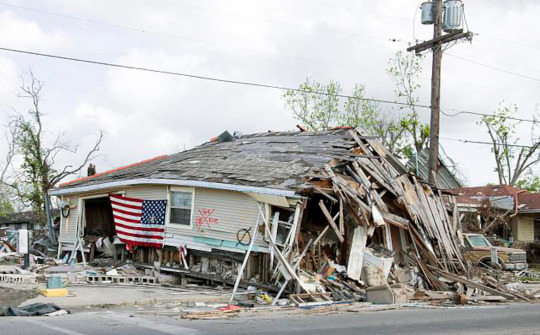
Source: National Guard Bureau, "Examining Lessons from Katrina 10 Years Later"
Then, a massive hurricane struck the Caribbean on August 1, 1772. It was incredibly damaging, causing mass destruction in St. Croix, and this is most definitely one that we in the south would evacuate for. Even my dad would evacuate for this one, and it took a lot of convincing to get him to evacuate for Katrina.
In reaction to this event, Hamilton wrote his famous letter to his father detailing and reflecting on the storm. And finally, I'm giving y'all my analysis of this letter that I keep saying I'll do. However, this post is already incredibly long, so I'm going to do it in a google doc and attach it here.
Source: Alexander Hamilton to The Royal Danish American Gazette, September 6, 1772
The letter was published to The Royal Danish American Gazette, which spread around the afflicted community. Knox's congregation gathered money for the anonymous young author (now not very anonymous) to sail to the American mainland for his education. Originally, Hamilton went to study medicine, due to the high demand for doctors in the Caribbean (his knowledge of anatomy would remain helpful throughout his life). However, at some point he decided he would not be going back to the Caribbean, and switched his focus to law, but we'll discuss that more in part two.
Source: Alexander Hamilton by Ron Chernow, p. 37-40
Well, there's part one. I did all of this in one day because um. I don't know, but it is now one in the morning and i have to wake up earlier than normal. so that's fun. i hope y'all enjoyed. shout out to my mom for proofreading half of this, and shout out to my aunt who gave me coffee, that was a horrible idea. i'll be back with part two at some point, which will probably be more concise because hamilton's childhood in the caribbean is where most of the theories are, so yeah. love y'all.
#alexander hamilton#history#amrev#american history#american revolution#hamilton#18th century#caribbean history#long post#research#heavy breathing#this is my career guys#do it for richie 💪#amrev history#i also watched like half of a chris chan documentary during this#and an entire markiplier playthrough#this is my spring break
45 notes
·
View notes
Text
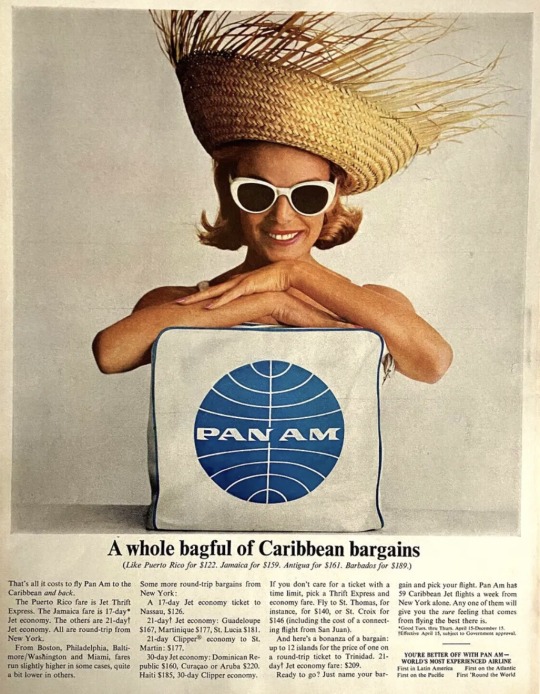
1964 Pan Am Airlines to the Caribbean
#1964#pan am#pan american#airlines#travel#vacation#fun#destination#island#caribbean#vintageadsmakemehappy#vintage magazine#vintage advertising#magazine#advertising#60s#1960s
142 notes
·
View notes